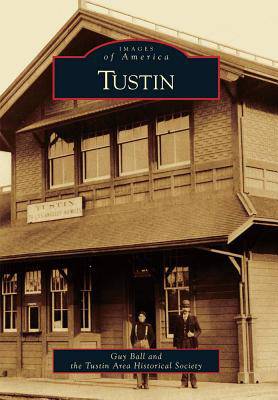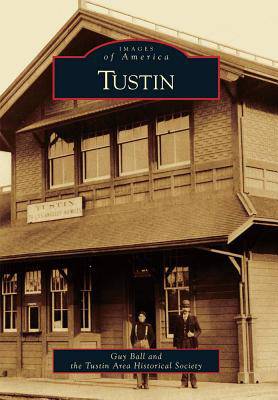
- Afhalen na 1 uur in een winkel met voorraad
- Gratis thuislevering in België vanaf € 30
- Ruim aanbod met 7 miljoen producten
- Afhalen na 1 uur in een winkel met voorraad
- Gratis thuislevering in België vanaf € 30
- Ruim aanbod met 7 miljoen producten
Zoeken
Omschrijving
Tustin's big early loss was in many ways its salvation. Founding father Columbus Tustin's real estate venture in 1868 found few takers, leading to his fervent campaign to make his town the southern terminus for the Southern Pacific Railroad. The depot duel was won by rival settlement Santa Ana, and Tustin City became just another backwater. Columbus Tustin died embittered, but his namesake, which dropped City in 1899, prospered as a pretty place with charming homes. Many early homes and downtown commercial buildings still survive, and where apricot, walnut, and orange trees once grew at mid century, comfortable tract homes and residential innovations such as Tustin Meadows and Enderle Gardens maintain the distinct small-town feel through Orange County's postwar freeway sprawl and identity loss. Tustin's past also included a wild and ramshackle quicksilver mine at Red Hill and two of the world's largest wooden structures--the Lighter-Than-Air (LTA or blimp) hangars--at Marine Corps Air Station Tustin.
Specificaties
Betrokkenen
- Auteur(s):
- Uitgeverij:
Inhoud
- Aantal bladzijden:
- 128
- Taal:
- Engels
- Reeks:
Eigenschappen
- Productcode (EAN):
- 9780738570372
- Verschijningsdatum:
- 24/01/2011
- Uitvoering:
- Paperback
- Formaat:
- Trade paperback (VS)
- Afmetingen:
- 165 mm x 231 mm
- Gewicht:
- 340 g

Alleen bij Standaard Boekhandel
+ 69 punten op je klantenkaart van Standaard Boekhandel
Beoordelingen
We publiceren alleen reviews die voldoen aan de voorwaarden voor reviews. Bekijk onze voorwaarden voor reviews.







